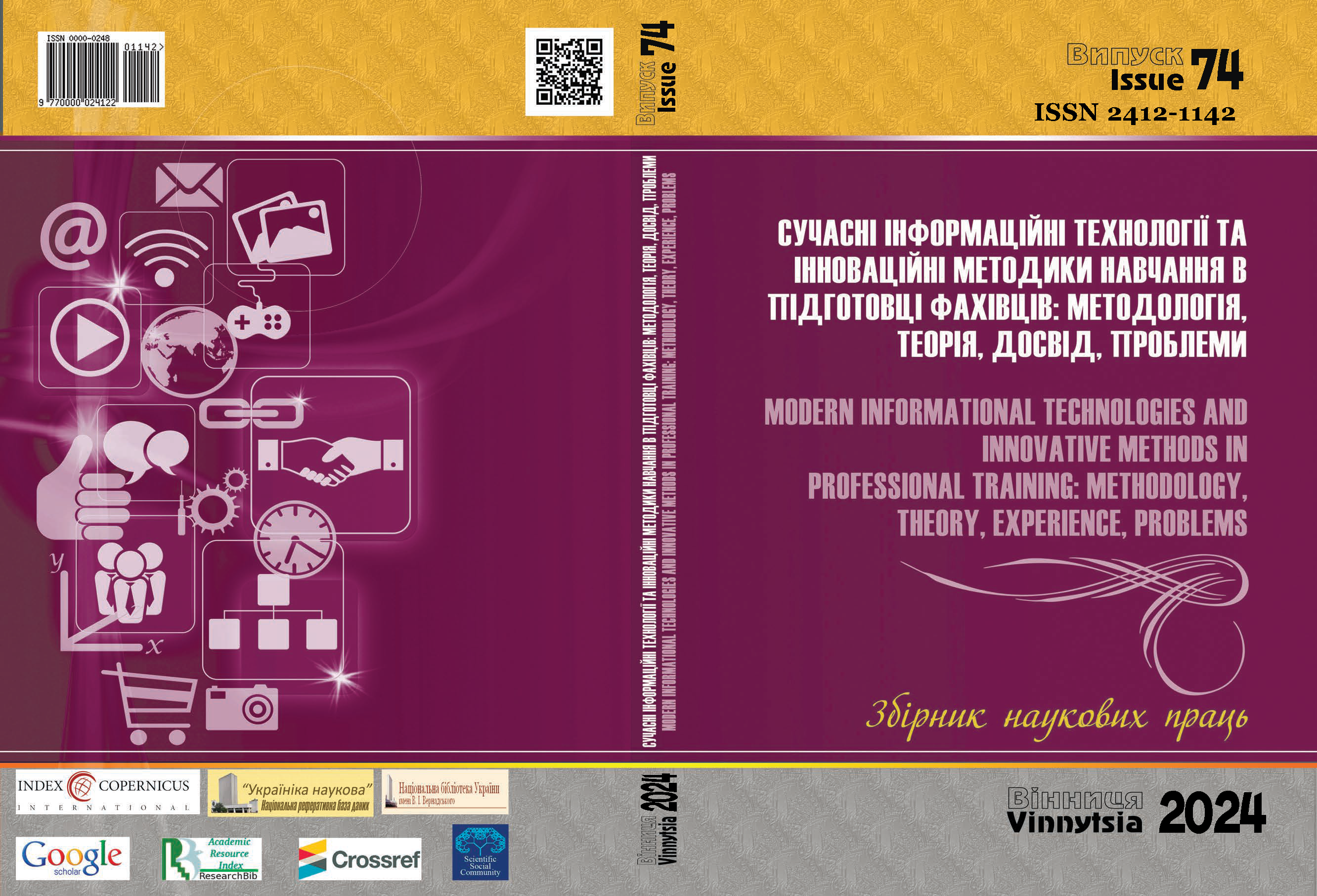AN EMPIRICAL STUDY OF THE FEATURES GAME ACTIVITY OF SCHOOL-AGE STUDENTS IN HISTORY LESSONS
DOI:
https://doi.org/10.31652/2412-1142-2024-74-156-166Słowa kluczowe:
game activity; education seekers; organized play; activation of cognitive activity, game technologies, didactic game, educational processAbstrakt
In the article, a theoretical analysis of the psychological and pedagogical literature on the problem of the characteristics of children's game activity was carried out, the essence of game activity, types of games for school-age children, problems of children's game activity were determined. The results of an empirical study of play activities of older preschool children with general underdevelopment of speech are presented based on a comparison of play activities with children of older preschool age with normative development, and the features of their play activities are determined. It was found that the didactic game in itself is not the completion of the lesson, but a means of learning and education. In our opinion, it is important to create a situation of success during game activities in history lessons, because this is the only source of the student's inner strength, which creates energy to overcome difficulties and the desire to learn in modern conditions. Thanks to the game, students are in demand by themselves, see their own prospects for growth and realize the need for self-improvement. In a systematically and properly organized game, the participants master the game at the level of creative search, and also intellectually connect with other technologies and means of learning to cognitive activity, which contributes to the cooperation of the teacher and student in the learning process, helps to strengthen the process of studying history, helps to better solve tasks that form creative thinking of students, their subject competencies. Therefore, the use of game methods creates conditions for the development of cognitive interest in a child, since the use of game methods is considered not only a natural phenomenon, but also one of the most effective ways of forming a creative personality.1. Anderson C. A., Dill К. E. (2020) Video games and aggressive thoughts, feelings, and behavior in the laboratory and in life. Journal of Personality and Social Psychology. № 78. P. 772 – 790 in English..
2. Ballard M., Wiest J.(2022) Mortal Kombat: the effects of violent videogame play on male’s hostility and cardiovascular responding. Journal of Applied Social Psychology. № 26. P. 717 – 730 in English..
3. Bartholow В., Anderson C. A. (2020) Effects of violent video games on aggressive behavior: potential sex differences. Journal of Experimental Social Psychology. № 38. P. 283–290 in English..
4. Brian D. N., Wiemer-Hastings P.(2021) Addiction to the Internet and online gaming. CyberPsychology & Behavior. V. 8. № 2. P. 110 –113 in English..
5. Brown R., Hall L., Holtzer, R., et al. (2022) Gender and video game performance. Sex-Roles. № 36. P. 793 – 812 in English..
6. Chumbley J., Griffiths M. (2006) Affect and the computer game player: the effect of gender, personality, and game reinforcement structure on affective responses to computer game-play CyberPsychology & Behavior, V. 9. № 3. P. 308–316 in English..
7. Colwell J., Kato M. (2023) Investigation of the relationship between social isolation, self-esteem, aggression and computer game play in Japanese adolescents. Asian Journal of Social Psychology, № 6. P. 149 –158
in English..
8. Funk J. B., Baldacci H. B., Pasold T., et al. (2004) Violence exposure in real-life, video games, television, movies, and the Internet: is there desensitization? Journal of Adolescence, 2004. № 27. P. 23 –39 in English..
9. Grusser S. M., Thalermann R., Griffiths M. D.(2007) Excessive computer game playing: evidence for addiction and aggression. CyberPsychology & Behavior, V. 10. № 2. P. 290–292 in English..
Pobrania
Bibliografia
Anderson C. A., Dill К. E. (2020) Video games and aggressive thoughts, feelings, and behavior in the laboratory and in life. Journal of Personality and Social Psychology. № 78. P. 772 – 790 in English.. DOI: https://doi.org/10.1037//0022-3514.78.4.772
Ballard M., Wiest J.(2022) Mortal Kombat: the effects of violent videogame play on male’s hostility and cardiovascular responding. Journal of Applied Social Psychology. № 26. P. 717 – 730 in English.. DOI: https://doi.org/10.1111/j.1559-1816.1996.tb02740.x
Bartholow В., Anderson C. A. (2020) Effects of violent video games on aggressive behavior: potential sex differences. Journal of Experimental Social Psychology. № 38. P. 283–290 in English.. DOI: https://doi.org/10.1006/jesp.2001.1502
Brian D. N., Wiemer-Hastings P.(2021) Addiction to the Internet and online gaming. CyberPsychology & Behavior. V. 8. № 2. P. 110 –113 in English.. DOI: https://doi.org/10.1089/cpb.2005.8.110
Brown R., Hall L., Holtzer, R., et al. (2022) Gender and video game performance. Sex-Roles. № 36. P. 793 – 812 in English.. DOI: https://doi.org/10.1023/A:1025631307585
Chumbley J., Griffiths M. (2006) Affect and the computer game player: the effect of gender, personality, and game reinforcement structure on affective responses to computer game-play CyberPsychology & Behavior, V. 9. № 3. P. 308–316 in English.. DOI: https://doi.org/10.1089/cpb.2006.9.308
Colwell J., Kato M. (2023) Investigation of the relationship between social isolation, self-esteem, aggression and computer game play in Japanese adolescents. Asian Journal of Social Psychology, № 6. P. 149 –158 DOI: https://doi.org/10.1111/1467-839X.t01-1-00017
in English..
Funk J. B., Baldacci H. B., Pasold T., et al. (2004) Violence exposure in real-life, video games, television, movies, and the Internet: is there desensitization? Journal of Adolescence, 2004. № 27. P. 23 –39 in English.. DOI: https://doi.org/10.1016/j.adolescence.2003.10.005
Grusser S. M., Thalermann R., Griffiths M. D.(2007) Excessive computer game playing: evidence for addiction and aggression. CyberPsychology & Behavior, V. 10. № 2. P. 290–292 in English.. DOI: https://doi.org/10.1089/cpb.2006.9956
Pobrania
Opublikowane
Numer
Dział
Licencja
Prawa autorskie (c) 2025 Ірина Іванівна Проценко

Utwór dostępny jest na licencji Creative Commons Uznanie autorstwa 4.0 Międzynarodowe.





